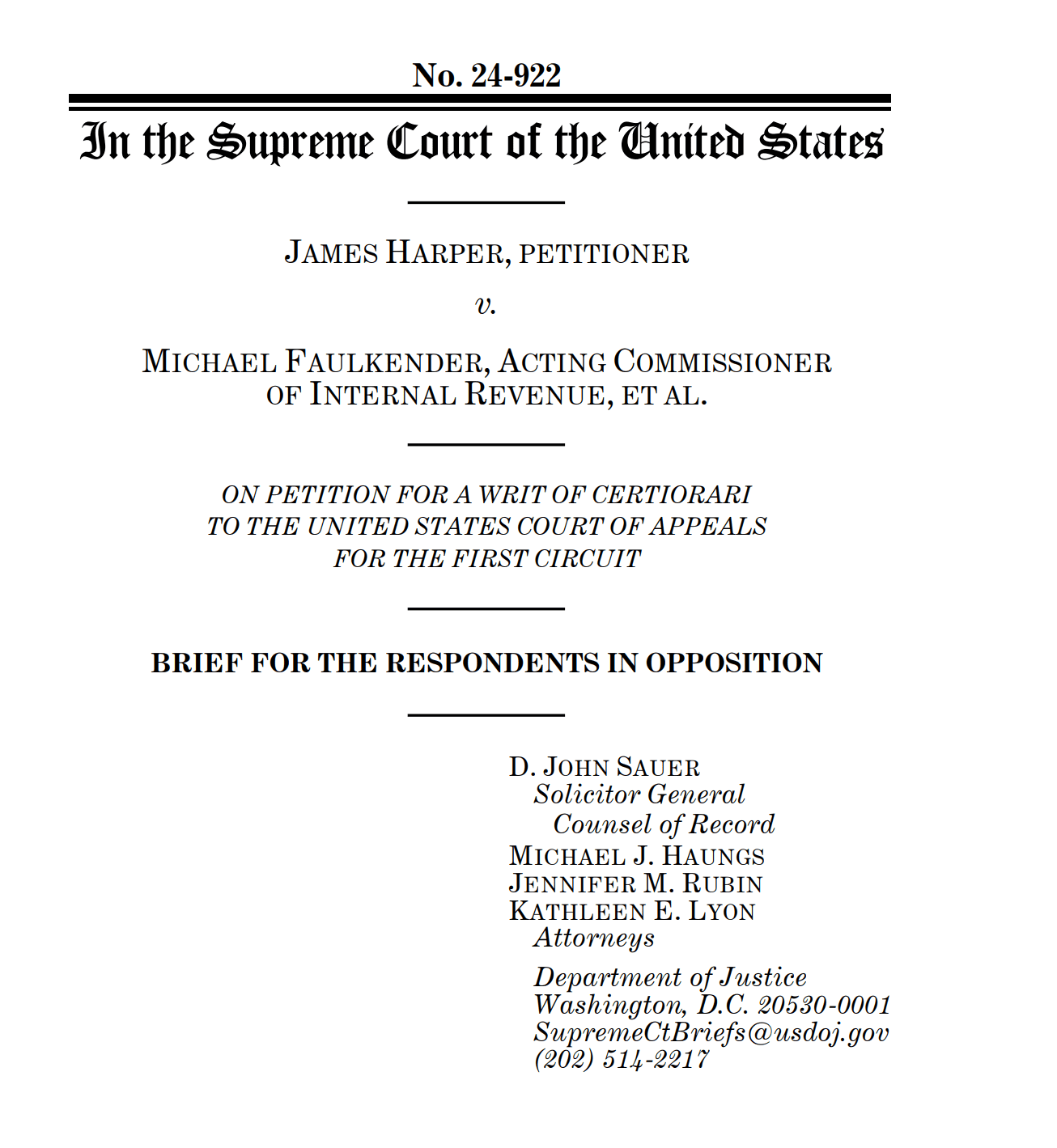The US government has urged the Supreme Court not to take up a Coinbase user’s challenge against the Internal Revenue Service’s (IRS) effort to obtain his crypto transaction records.
In a filing dated May 30, Solicitor General D. John Sauer argued that Coinbase user James Harper has no Fourth Amendment right to shield his financial records held by the exchange.
The government claimed that Harper “voluntarily” shared his data with Coinbase, and that the IRS followed proper legal procedures to obtain it through a judicially approved summons.
Harper’s case centers on a 2016 IRS investigation into widespread tax underreporting on cryptocurrency gains. At the time, the IRS discovered a sharp gap between the millions of Coinbase users trading Bitcoin (BTC) and the relatively few taxpayers who reported crypto gains.
In response, the agency obtained a so-called “John Doe” summons compelling Coinbase to turn over records on high-volume customers.

Coinbase user sues IRS over crypto records search
Harper, who traded Bitcoin on Coinbase during the relevant years, later sued, claiming that the IRS’s actions amounted to an unconstitutional search of his personal records.
Lower courts disagreed, ruling that Coinbase’s records are business documents — not Harper’s private papers — and that the IRS acted lawfully.
In its brief, the government argued that Supreme Court precedent supports the IRS’s position. Citing past cases such as United States v. Miller, the government emphasized that individuals have no reasonable expectation of privacy in financial records held by third parties Coinbase.
The filing also pointed to Coinbase’s own privacy policy, which warned users that information could be shared with law enforcement.
“To the extent petitioner made those arguments below, the court of appeals correctly rejected them as both foreclosed by this Court’s precedent and meritless,” the government said.
The Supreme Court has not yet decided whether it will hear the case. A denial would leave in place the First Circuit’s ruling in favor of the IRS.
Quick Summary of the News
- The US government has urged the Supreme Court to reject a challenge by Coinbase user James Harper against an IRS summons for his crypto transaction records.
- The government argues that Harper voluntarily shared his data with Coinbase and has no Fourth Amendment right to shield it.
- The IRS investigation originated from a 2016 probe into widespread tax underreporting on crypto gains.
- Lower courts have ruled in favor of the IRS, stating that Coinbase’s records are business documents, not private papers.
- The Supreme Court has yet to decide whether to hear the case.
Why It Matters
This case has significant implications for crypto users’ privacy rights and the extent to which government agencies can access their financial information held by exchanges. A ruling in favor of the IRS could set a precedent that weakens privacy protections for crypto users and emboldens regulatory scrutiny.
Expert Take or Personal Insight
The government’s argument hinges on the idea that users voluntarily share their data with exchanges, thereby relinquishing any expectation of privacy. However, this ignores the reality that using centralized exchanges is often necessary to participate in the crypto market. While exchanges have privacy policies, the extent to which these policies can protect users against government overreach remains questionable. The outcome of this case could significantly impact how crypto users perceive the balance between regulatory compliance and individual privacy.
Actionable Insight
Traders and investors should closely monitor the Supreme Court’s decision on whether to hear this case. If the court declines to hear the case, it would reinforce the precedent that financial records held by third-party exchanges are not protected by Fourth Amendment privacy rights. Crypto users might consider exploring privacy-focused cryptocurrencies and decentralized exchanges (DEXs) to enhance their financial privacy.
Conclusion
The legal battle over Coinbase user records underscores the ongoing tension between regulatory oversight and individual privacy in the crypto space. The Supreme Court’s decision will have far-reaching consequences for the future of crypto regulation and the privacy expectations of its users. As the crypto landscape evolves, users and businesses must remain vigilant in protecting their financial data and advocating for clear, balanced regulatory frameworks.